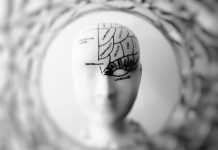The researchers from the University of Notre Dame in Indiana have decided to study the well-known phenomenon occurring when a person forgets the reason why he or she entered the room. The researchers believe that the passage through the doorway impairs short-term memory.

To conduct the research, they had a series of experiments in virtual and real environments. During the first experiment in virtual reality, the volunteering students were offered to pack some items into boxes and either take them to another room, or move them indoors. After this, the experiment was repeated in the real world. In the third experiment, the packed objects were moved through several rooms, so that in the end they would be found in the same room where the experiment began.
It was found that in all cases the participants of the experiment found it more difficult to remember what was in the box, if they went to another room. The third experiment confirmed that the memory was affected by passing through the doorway, rather than by the differences in the environments where the packing took place and when it was needed to remember what was inside the box.
The leader of the study, Gabriel Radwanski, believes that entering or going out through a doorway is a barrier in the thinking processes, which delineates the episodes of activity and sends them to the “archive”.










